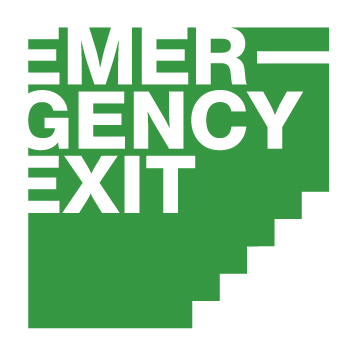Mentors: Prof. Mag. Art., Tomislav Brajnović, Assoc. Prof. E.dM. Mr. Sc., Ingeborg Fülepp, doctor candidate Dijana Protić
Video Documentations of lectures until recent on YouTube
Course objectives
The COVID-19 crisis has accelerated and accentuated many processes related to the development and use of digital technologies. The focus of social events, including education and the arts, has shifted sharply and abruptly into the digital space. In this course, the crisis is viewed as a state of emergency from which we are trying to find a way out, but the way out is not contained within a single, specific discipline; rather, it is comprehensive, interdisciplinary.
The aim of the course is to raise awareness of the ongoing processes, explore potential collaborations among artistic and scientific fields, phenomena of placement and dissemination of disinformation, the crisis of authority and the associated crises of perception, meaning and subjectivity-objectivity relationships, global ecological and social restructuring and examine how all the above mentioned processes affect art-making, art education and art presentation. Participants are expected to formulate and develop their own ideas related to the above described issues, and to concretize these ideas in an intermedia artwork of their choice. The results of an interdisciplinary collaboration between artists, scientists and theoreticians developed through the course, will be gathered and presented in an e-book.
Expected learning outcomes (development of general and specific competences – knowledge / skills)
The course attendants will become aware of the changes that have occurred, which were strongly present, only less visible, even before the crisis generated by the COVID-19 pandemic. They will also develop a more profound understand of intermedia and interdisciplinary relationships primarily in art, but also in a broader social context. The attendants will understand the wider context of artistic and creative practice, and gain the experience of active participation in all stages of similar projects, from designing their own work to planning, realization and evaluation of the results. After completing the program, students will be able to think independently in multiple directions while creating works of art and projects intended for the digital and analogue spheres. Finally, they will become more aware of the ethical dimension of art and science as a necessary level of reflection on reality which they can influence through art-making.
The acquired insights will enable them to keep up with the tremendously rapid development of digital platforms, by adapting to new requirements and capabilities.
Course content
The program includes lectures, podcasts, conferences, workshops and online courses, which are open to students of all faculties of the University of Rijeka who applied to the YUFE network open call. Attendants will be selected through a competition. All attendants will be invited to participate in further art and science of the University of Rijeka within the YUFE network. The methodology of teaching includes theoretical and practical part. The theoretical part covers a range of topics arising from the relationships between art and science, public and private, but also topics of disinforming, censorship and algorithmic populism, topics related to art making, art education and art presentation. The practical part includes a transdisciplinary collaboration among scientists and artists, which results in new experiences and forms of art.
Student obligations (describe)
Students will gain knowledge through online lectures and workshops, individual research and practical work. Lectures will cover topics such as art in open spaces, anthropology, philosophy, aesthetics and ecology, implications in relation to art, posthumanism and digital technologies. The most important thing in this course is to encourage the development of student projects in an interdisciplinary context.
Students’ obligations, with the help of mentors, include research and presentation of results several times throughout the development of the idea. Students are required to fulfil their obligations within deadlines. Presentation, oral and written explanation of own final work (online platforms Zoom) Participation in all meetings with the teacher and other mentors who may be assigned to students throughout the course. Students should reach the expected levels of development of the started project, complete a project and present and evaluate it in stages using visual or written documentation.
